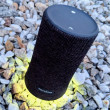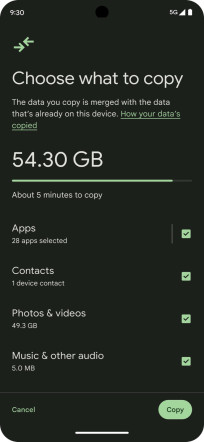
Google Makes it Easier, Faster to Set Up a new Android Phone
Google today announced a number of new features and updates that improve the experience of setting up a new Android device, particularly around moving apps and data from your old device, be it and iPhone or Android phone. Previously exclusive to Pixel devices, several different Android manufacturers now include or support Android Switch, Google's app that guides you step-by-step through setting up a new device and transferring your data. Wireless transfer is supported, but more types of data can be transferred from an iPhone when using a cable. Further, Google has made cable transfers from iPhone 40% faster. Google is also starting to roll out the option to run Android Switch after the initial setup process. This option is currently available on the Pixel 9 series, but is "coming to more Android phone makers in 2025". Finally, Google is rolling out a Restore Credentials feature that lets app logins transfer seamlessly when upgrading from one Android device to another. This will mean individual apps should no longer require you to log in again when setting up a new device.
Google Brings its AI App to iPhone
Google has released its Gemini app for iOS, bringing the full features of its flagship AI tool for consumers to iPhone for the first time. Some features of Gemini were already available via the Google search app. But new Gemini app includes Gemini Live, which lets you have a multi-part conversation with the AI model. It also provides access to multi-modal searches, such as queries that include an image. Image generation is also supported, as well as Extensions, which links Gemini to your data in other Google apps such as Gmail, Calendar, Maps, YouTube, and more. Some features require a paid subscription.
Google Adds Major Features to Fitbit Ace Kids' Watch
Google is adding Family Chat and sibling chat to its Fitbit Ace LTE watch for kids. Family Chat is a group chat for the whole family, while siblings can now message or call each other.
Google Accelerating New Android Versions
Google is changing its Android release schedule, releasing more new versions, sooner. While Google has stuck to a relatively consistent annual schedule in recent years, with Android 15 having just been released, the next major version — Android 16 — is now planned for the second quarter of next year. Google says this earlier release date is "to better align with the schedule of device launches across our ecosystem, so more devices can get the major release of Android sooner." Another, more minor, update is also planned for the fourth quarter of next year. The "major" update will bring API and behavior changes that typically come with a whole new version of Android, requiring all developers to test their apps for issues. The new "minor" update could introduce new features and APIs, but should not break any existing apps. With this new schedule, Google says to expect the first developer preview of Android 16 soon.
Google Working on "Rich Ongoing Notifications" for Android
Recent beta versions of Android include the first bits of a new API for app developers called Rich Ongoing Notifications. It appears to let developers put an icon plus small bit of updating text directly in the status bar, similar to the "chip" that is displayed in the status bar during a phone call. The feature would therefore be similar to the Live Activities feature that Apple introduced in iOS with its Dynamic Island concept. The feature may be slated for Android 16. Android 15 was just released.
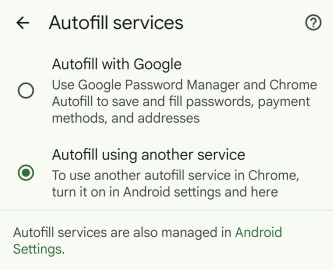
Chrome on Android to Play Nicer with Third-Party Password Managers
Google is improving how its Chrome web browser on Android integrates with third-party auto-fill services such as password managers. Currently, such software must use a "compatibility mode" in Chrome that can be glitchy and is being phased out. Starting in Chrome version 131, a new "Autofill services" setting will let users choose a third-party service. Chrome 131 is scheduled to be released November 12, with a beta version already available. Users will have to manually choose a third-party autofill service in system settings (if they haven't already done so), then choose "Autofill using another service" in Chrome settings. Chrome will then use whatever service was chosen in the system settings. Google recommends that third-party password manager apps show a prompt to users, to inform them of these steps they need to take. Google plans to phase out Chrome's "compatibility mode" sometime in "early 2025".
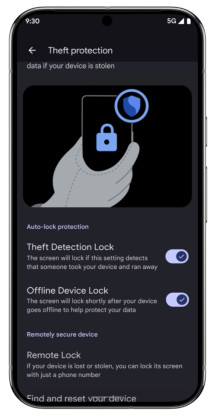
Android 15 Exits Beta, Starts Rolling Out
Android 15 is finally, officially launching, starting today with Pixel devices. This version had an unusually long beta testing period. Among many new features, the biggest may be a suite of new anti-theft features. Most interesting is Theft Detection Lock, which uses AI and the phone's sensors to detect when a phone may have been snatched and automatically lock it. Google has also added "authentication requirements for settings targeted by thieves, like removing your SIM or turning off Find My Device, and will lock down your device if we sense multiple failed attempts for apps and settings." These features are not necessarily on by default, often needing to be activated manually in Settings. Android 15 also brings "Private Space", a place to hide sensitive apps behind an additional layer of authentication. Finally, Android 15 brings a standardized way for carrier messaging apps to send and receive messages via satellite. Android 15 should come to Samsung and other Android phone brands in the coming months. Google is also using the Android 15 update for Pixel phones to do a new "Feature Drop" with new Pixel-exclusive features. This includes Audio Magic Eraser, to clean up audio in your captured videos. The camera app gains a new Underwater mode, to capture better colors underwater. Finally, the Pixel Weather app now includes a three-part pollen tracker for seasonal allergies.
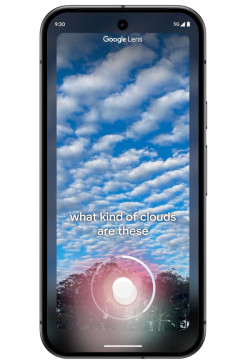
Google Now Lets You Search with Camera + Voice
Google has enhanced its Google Lens feature on mobile to support voice queries while doing a visual search with your phone's camera. On both iOS and Android, you can now ask Google questions like "why did the artist paint this?" or "what kind of clouds are these?", using your voice, while pointing your phone's camera at a painting or the sky, for example. To access the feature, open the Google (search) app, tap the camera (Google Lens) icon, aim, and hold down the shutter button while speaking. The feature can also be accessed from the dedicated Google Lens app, or anywhere else a Google Lens icon appears, such as in camera apps or home screen widgets.
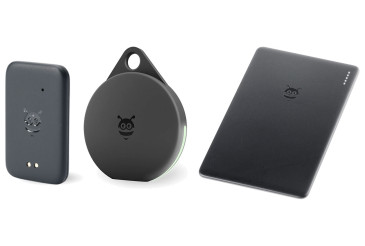
Pebblebee's New Trackers Work with Both Apple and Google Find My Networks
Peeblebee has launched a new lineup of "Universal" Bluetooth item-tracking tags that are the first to be compatible with both Apple Find My and Google's Android Find My Device networks. The $35 tags are rechargeable and come in three form factors: Tag, Card, and Clip. The rectangular Tag is the smallest. The round Clip has a lanyard hole ideal for attaching to keys and bags. The Card is 2.8mm thin to fit into wallets and laptop sleeves. The Clip can charge directly via USB-C, while the Card and Tag come with a magnetic charger. The Tag lasts 8 months on a single charge, while the Clip lasts 12, and the Card, 18. All include a buzzer and lights to aid finding when lost, and are rated IPx6 for water resistance. Both the Apple and Google networks work similarly, by leveraging Bluetooth of smartphones and other connected devices worldwide. Encryption and anonymization ensures privacy and security. Cross-platform anti-stalking features help guard against unwanted tracking.
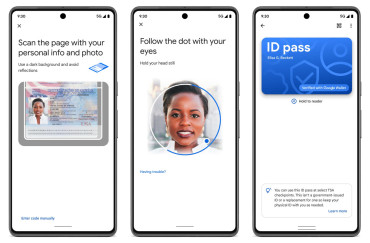
Google, TSA Testing New "ID Pass" in Wallet, Created by Scanning Passport
Google will soon start beta testing a new type of digital ID in Google Wallet. This "ID Pass" serves the same function as a digital driver's license (mID) at TSA airport security checkpoints and potentially other places where you need to verify your identity. In this case, it's created by scanning your passport (the photo page and chip) with your phone, then scanning your face to confirm it's you. This creates an "ID Pass" that will be accepted at TSA checkpoints that already take mID. The TSA has a web site that lets you check which airports accept digital IDs before you travel. Importantly, an ID Pass is not a digital passport, and Google still recommends carrying a physical ID. Google also shared that Iowa, New Mexico, and Ohio will be the next US states to enable mID in Google Wallet.
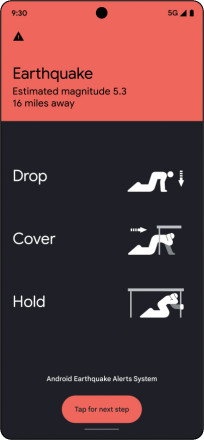
Google Expands Earthquake Alerts Nationwide
Google has released a new version of Android 14 today that brings several new features alongside the usual security updates. One is the expansion of the Android Earthquake Alerts System to all all 50 US states and six territories. The system automatically crowd-sources data using the built-in accelerometers in Android phones. It can then provide alerts to users when there's an earthquake, sometimes seconds before noticeable shaking starts. This can give users precious time to get to safety, such as a doorframe. On phones that can run the newest version of Gemini Nano — currently just the Pixel 9 series — the TalkBack screen reader can now use AI to describe on-screen images in detail. Finally, Google has added the ability to identify songs by audio to Circle To Search.
Verizon Launching Satellite Service for Android Phones That Support NTN
Verizon has announced a new satellite connectivity service that will offer SOS and location-sharing features in cellular dead zones with compatible Android phones starting this fall. Non-emergency messaging will launch next year. The first compatible Android devices (using the 3GPP rel. 17 NB-NTN standard) are the new Pixel 9 series from Google and "upcoming Galaxy devices" from Samsung. Verizon is partnering with Skylo to offer the service. Skylo's service works similarly to Apple's "Emergency SOS via satellite" feature, and will bring Samsung (and Google) phones up to parity with iPhones in Verizon's lineup. Verizon also has a partnership (and investment stake) with AST SpaceMobile, which will offer similar functionality that works with existing phones. However that service is not available yet because more new satellites must be launched (literally) before it's ready for consumers. This new, Skylo-based service allows Verizon to offer satellite connectivity — for compatible phones — sooner. This service requires specific hardware support in the phone, including an NTN modem and L-band antenna. Qualcomm's upcoming X80 modem includes NTN support and is expected to appear in the next wave of flagship Android phones. MediaTek also offers chips that support NTN. While the Pixel 9 series comes with satellite service from Google, Verizon says it is "working towards a plan to move Pixel 9 to Verizon" satellite service. Both T-Mobile and AT&T seem to be skipping NTN and relying on future systems that require new satellites but will work with existing phones; AT&T is also partnering with AST, while T-Mobile is working with SpaceX Starlink.
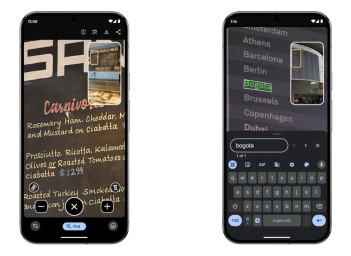
Google Launches New Low-Vision Accessibility Features
Google has announced a major update to its Magnifier app for Pixel phones. Designed for the low-vision community, Magnifier originally did only what its name implied: using the phone's camera to see the world better via zoom, filters, and contrast controls. The new version will let users search for specific words in their surroundings. Google's example use cases include "looking for your flight’s departure time at the airport or trying to find a vegetarian dish on a menu." The app will also now take advantage of all available cameras on each phone, including wide-angle and macro, when appropriate. Finally, a new picture-in-picture view will help users stay oriented when zoomed in very far. Google did not say when the update would be available.
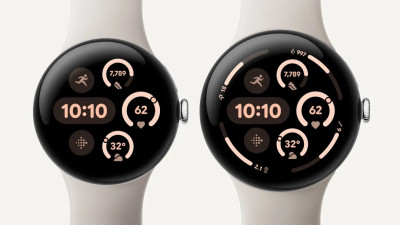
Google Upgrades its Watch and Buds
Google today announced the Pixel Watch 3 and Pixel Buds Pro 2. The Pixel Watch 3 comes in two sizes: 41mm and a new, larger 45mm diameter. Upgrades in this year's model include a 2x brighter display (now up to 2000 nits), offline Google Maps, and a Recorder app. Enhanced Fitbit health features include a more interactive running coach, Workout Builder, and a new "readiness" score to evaluate workout recovery. Improved Google ecosystem integration includes live streaming video from Nest doorbells and cameras, remote camera viewfinder and control for Pixel phones, and Google TV remote control. In some regions — starting with the UK and Europe — a new Loss of Pulse detection feature can automatically notify emergency services of your location during critical medical emergencies. The Pixel Watch 3 starts at $350; add $100 for cellular connectivity, and/or $50 for the larger size. It goes on sale starting Sept. 10. Meanwhile, the new Pixel Buds Pro 2 are designed around a new custom chip that Google calls the Tensor A1. This enables improved audio processing and ANC that's twice as strong while being more efficient. Battery life runs eight hours (30 with case) even when using ANC. The buds are also 27% smaller and 24% lighter compared to the previous version. A unique design for the in-ear portion lets you optionally twist them for a tighter fit, such as during workouts. The Pixel Buds Pro 2 come in four colors and ship Sept. 26 for $229.
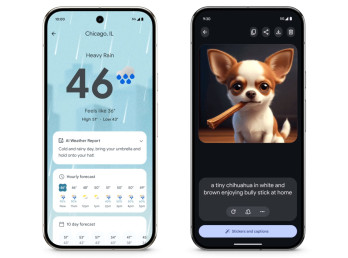
Google Brings New AI Apps to Pixel Phones
Google today announced several completely new apps for Pixel phones, some powered by Google Gemini AI. The most basic is a Pixel Weather app. A new Call Notes feature transcribes phone calls to make phone conversations searchable via AI. (Call Notes runs completely on-device for privacy, and both parties are notified when it's enabled.) A new Pixel Screenshots app does something similar, letting you search all of your screenshots using AI. A new Pixel Studio app is dedicated to visual generative AI, letting you create and tweak images using text prompts. It can create styled or realistic images (unlike Apple's generative AI) and lets you add text and stickers. Finally, Gemini Live is a new, conversational version of Google's Gemini multi-modal AI. It requires a paid subscription to Gemini Advanced, but a free year is included with the new Pixel 9 series.
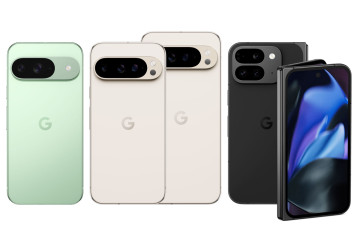
Google's Pixel Pro Phone now Comes in Two Sizes
Google has officially revealed full details of its newest flagship phone lineup: the Pixel 9 series. For the first time, Google is offering the higher-end "Pro" model in two sizes: regular, with a 6.3-inch display, and "XL", with a 6.8-inch display. The larger model also has a larger battery and faster wired charging (37W vs. 27W), but specs and features are otherwise identical between the two Pro models. All of the new Pixel 9 models have a "industry-leading" AI performance thanks to a new Google Tensor G4 chip and at least 12 GB of RAM. As we previously reported, all Pixel 9 models include satellite radios, for a new "Satellite SOS" feature. Similar to Apple's version of this feature, it lets you contact emergency responders and share your location via satellite, and the service is free for two years. Google also claims the Pixel 9 is twice as durable, has a 35% brighter display, and gets 20% better battery life when active, compared to the Pixel 8. The ultra-wide camera also gets a boost to 48 megapixel, and the front camera has been upgraded with auto-focus. Google has also switched from optical to ultrasonic in-display fingerprint readers, which it says are 50% faster. A revamped panorama mode adds HDR and Night Sight. All Pixel 9 series come with seven years of full OS updates. The Pixel 9 Pro and Pixel 9 Pro XL add a 48-megapixel 5x telephoto camera, which Google claims can zoom up to 20x for video with no loss of quality. They have the same 50 megapixel main camera and 48 megapixel wide camera as the Pixel 9, but the auto-focus selfie camera gets a boost to 42 megapixel. The Pro models also come with more RAM (16 GB), UWB, and a free one-year subscription to Gemini Advanced, including access to the Gemini Live conversational assistant. The Pixel 9 Pro Fold carries over most of the specs and features of the Pixel 9 Pro while adding an 8-inch tablet display inside. The cameras get a bit of a downgrade, though, with the wide, 5x tele, and selfie cameras clocking in at just over 10 megapixel each. The Pixel 9 starts at $799, the Pixel 9 Pro starts at $999, and the Pixel 9 Pro XL starts at $1,099. All three come with just 128 GB of storage. 256 GB is available for $100 extra; the Pro models are also available with 512 GB or 1 TB. The Pixel 9 Pro Fold starts at $1,799 (with 256 GB storage). Pre-orders run through August 21st, and include free double storage with some carriers (including AT&T, excluding the Fold). The Pixel 9 and Pixel 9 Pro XL ship August 22, while the smaller Pixel 9 Pro and Pixel 9 Pro Fold ship later, starting Sept. 4.
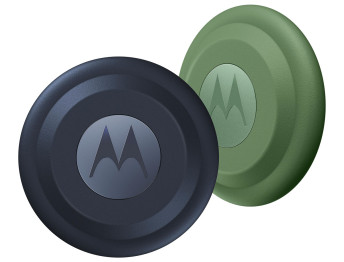
Moto Tags Now Available
Motorola's new Moto Tags go on sale starting today, available from motorola.com and amazon.com. Moto Tags use the new, Bluetooth-based Google Find My Device network and include UWB for short-range, precision location. Moto Tags are similar to Apple AirTags and work with most Android phones. They also support cross-platform protections against unwanted tracking (stalking). Moto Tags are rated IP67 for dust and water, and use the same CR2032 battery as AirTags, designed to last one year. Moto Tags have a button, which can be used to ring a lost phone, or trigger your phone's camera. Moto tags sell for $30 each, or $100 for four. Chipolo and Pebblebee also make tags compatible with the new Google Find My Device network.
Google Bringing "School Time" Parental Controls to Android
Google today announced that its Family Link parental controls for Android devices will soon gain a School Time feature. "School time enables parents to set their child's personal device to a dedicated home screen with limited functionality during school hours". Parents can also schedule and select which apps are allowed [and] allow calls or texts from specific contacts." Google promises to bring School Time to "select Android phones, tablets and Samsung Galaxy Watches" over the next year.
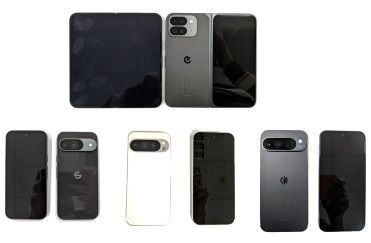
Google Pixel 9 Series Revealed: at Least Four Models This Year
Google's Pixel 9 series of phones has leaked via official regulatory filings for Taiwan. In addition to a standard, Pro, and Fold model, this year's lineup will include a Pixel 9 Pro XL, meaning the Pro model will come in two sizes. [Update: Google has also posted revealing teaser videos via official social media channels, essentially confirming the leaked info.] The Pixel 9 Pro Fold has been revised with a shape and size that appears closer to Samsung's Z Fold. All three Pro models appear to have periscope telephoto camera lenses for extended optical zoom. The Pro models also have UWB, while all four models have a Thread radio for better Matter smart-home support. Some of these models have also recently been approved by the FCC. Those FCC approval documents do not contain photos, but do confirm the presence of not only Thread radios, but dual-band satellite (NTN) connectivity as well.
Android Gains Support for Thread
Android 15 will include support for phones with a built-in Thread radio for connecting directly to Matter smart-home devices. No such Android phones yet exist, but the iPhone 15 Pro and 15 pro Max include Thread radios for the first time. A typical Matter smart-home network today consists of smart devices with Thread radios and a Matter "hub" or "border router" that connects the Thread mesh network to Wi-Fi and the Internet. Today, smartphones control a Matter smart-home via Wi-Fi and the Matter hub. But a phone with a Thread radio would be able to connect directly to Matter devices like smart switches and smart light bulbs. This might enable faster setup, or perhaps improve day-to-day reliability by giving the phone two ways to connect to a device when controlling it locally. Matter is the relatively new industry standard for smart-home networks and devices, embraced by both Google and Apple, and designed to replace proprietary solutions.
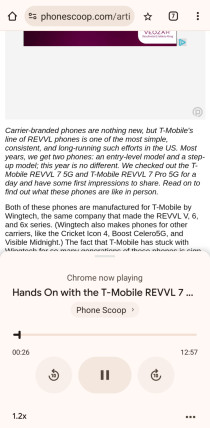
Chrome Adds "Listen to this page"
Google's Chrome web browser for Android has quietly added a new feature that will read a web page aloud. On pages where it makes sense, the main options menu now has a "Listen to this page" option. This brings up a basic audio playback interface at the bottom, which can be expanded to show more options. A scroll bar lets you skip around. Two buttons let you skip 10 seconds back or ahead. You can also choose from several different voices and set playback speed from 0.5x to 4x. By default, it highlights what it's reading and auto-scrolls so you can follow along visually, but this can be disabled.
You Can Now Edit Messages on Android
The Google Messages app has been updated to support editing messages after they've been sent in RCS chats. The feature is supported in both group and one-on-one threads. Editing is only allowed for 15 minutes. To use the feature, press and hold on the message you wish to edit. Apple's iMessage has supported message editing since 2022, when Apple also introduced message un-sending and the ability to mark messages unread.
Google Maps Gains Bluetooth Auracast Info
Google is adding an indicator for Bluetooth Auracast to Maps listings. Now places like theaters, gyms, places of worship, and auditoriums will be able to advertise that they offer Bluetooth Auracast wireless broadcast audio. Auracast is for everyone, but is particularly useful for those in need of hearing assistance, as it works directly with newer Bluetooth hearing aids. Businesses must update their own profile in Maps to add this information.
Google Turbo-Charges Anti-Theft Features in Android
Google is adding a lengthy list of new features to Android intended to protect against phone theft in various ways. Three new features help lock your screen if it was stolen while unlocked:
- First, AI will monitor sensors for motion associated with theft, such as the phone being snatched from a hand and quickly moving away. The screen will automatically lock.
- Separately, Offline Device Lock looks for extended periods of network disconnection, which thieves sometimes use to prevent remote locking/wiping. This will automatically lock the screen.
- Another feature allows you to manually lock your screen remotely, from any device, even if you've forgotten your Google account password. (It uses your phone number and a security question.)
- After a factory reset, a device can only be set up anew after providing device or Google account credentials from before the reset. (This is intended to deter thieves who try to resell stolen phones.)
- Private Space lets you put banking and other sensitive apps behind a lock that requires its own separate PIN.
- Since thieves often start by trying to disable Find My Device or extend the screen timeout, these settings now require authentication.
- Finally, copying a feature recently implemented by Apple in iOS, an optional "enhanced authentication" setting requires biometric authentication (not PIN) "for accessing and changing critical Google account and device settings, like changing your PIN, disabling theft protection or accessing Passkeys, from an untrusted location."
Google Shows Off New AI in Android
Today at its annual I/O developer's conference, Google unveiled new AI features across its platforms and apps. In the Gmail mobile app, a new feature will let you summarize an email or thread with one tap. A Q&A feature will let you search your emails using AI prompts with structured results. Finally, Contextual Smart Reply suggests one-tap options for complete reply emails based on the context of past emails. The Gemini AI chatbot app will soon gain a "Live" feature that lets you have a real-time voice conversation with Google's Gemini AI model. Later in the year, this will be enhanced to take both video and voice as real-time inputs. Google is also making Gemini available as a floating pop-up window that can take whatever is on the screen as an input, much like Circle To Search, which is also gaining smarter AI-powered results. An experimental new feature has private, on-device AI (Gemini Nano) listening to your phone calls so it can intervene if it detects a malicious scam call.
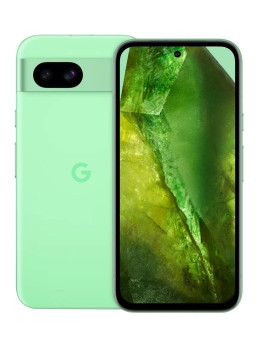
Google Pixel 8a is a Modest Update to the 7a
Google has announced the Pixel 8a, this year's more-affordable Pixel model. It offers several small hardware improvements over last year's 7a, and new AI software features, but is otherwise quite similar to the 7a. The design has more rounded corners. The "Actua" display is 40% brighter and the refresh rate gets a bump from 90 to 120 Hz. There's also a new 256 GB storage option. An upgrade from a Google Tensor G2 processor to the newer G3 chip enables new software features like Best Take for group photos, Magic Editor for photos, and Audio Magic Eraser for video. Circle To Search is also available, and Gemeni AI can summarize emails. Pixel 8a also makes official the controversial Audio Emoji feature revealed last week. The battery is also slightly larger at 4,492 mAh vs. 4,385 mAh. Other features and specs remain the same as the 7a, including FHD+ display, 64 megapixel main camera, 13 megapixel wide camera, 8 GB RAM, storage starting at 128 GB, IP67 water resistance, 5G, Wi-Fi 6E, 18W fast charging, and wireless charging. The launch price is also unchanged at $499. As before, a version with mmWave 5G is available for Verizon but priced a little higher, at $550. The Google Pixel 8a is available for pre-order today, shipping May 14th. It's available in four colors at launch: Porcelain (off-white), Obsidian (black), Bay (blue), and a limited-edition Aloe (mint green).
Google Adding Sound Effects to Android Phone App
The newest beta version of Google's Phone app for Android includes "Audio Emoji", which are buttons that play a sound effect that both parties can hear. They include clapping, laughing, crying, party, drums, and ... poop, which makes a farting sound. The beta test suggests that the feature could roll out to all users in the coming weeks.
Google Discontinues VPN in Google One
Google will no longer include a VPN service with its Google One subscription service bundle. Google told 9to5Google that the feature is being discontinued because "people simply weren’t using it." Google first introduced the feature for top-end plans in late 2020, then brought it to all plans just over one year ago. Google still offers a VPN service for owners of recent Pixel phones, and for Google Fi customers.

AI Tools Coming to All Google Photos Users
Google is bringing some of its newest AI-powered photo-editing tools to nearly all Google Photos users, after first introducing the features as exclusive to its Pixel 8 series of phones. Features like Magic Editor, Photo Unblur, Magic Eraser, and Portrait Light will be available to everyone — even on iOS — starting May 15th. The most powerful and demanding tool, Magic Editor, will be limited to 10 edits per month unless users also subscribe to the "Premium" Google One plan that runs $100/year. Magic Editor uses generative AI to make it easy to do complex photo edits "like repositioning your subject or turning the sky from gray to blue."
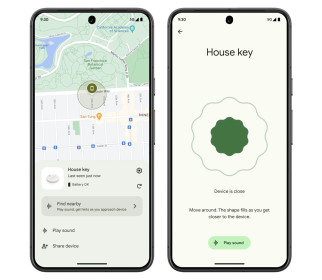
Google Launches New "Find My Device" Network
Google has launched its new Find My Device app and service, which mimics the capabilities of Apple's Find My app and service, and works in a similar way. Both systems tap into the Bluetooth functions of billions of smartphones and other devices worldwide to help find lost devices and items via automatic crowdsourcing. Location data is aggregated and encrypted to ensure anonymity and privacy. Google's system can be used to locate Android devices starting today, and new Bluetooth tracker tags starting in May. Unlike Google's existing phone-finding system, the new system can find lost devices even when they're offline, and can even find a Pixel 8 or 8 Pro when it's off or the battery is dead. The system provides long-range tracking by showing location on a map, as well as a short-range "Find nearby" mode that shows when you're getting closer to the lost device as you walk around. It can also tap into a Nest smart-home and show to which Nest device the lost item is nearest. The app also lets you share permission to track a device with other people. The new Bluetooth tracker tags will be available from Chipolo, Pebblebee, eufy, Jio, Motorola, and more. The tags will be fully compatible with the new cross-platform unwanted tracking protections developed by Apple and Google. iOS 17.5 brings new support for this standard, ensuring that Apple phone users are protected from stalking via tracking tags using Google's ecosystem, and vice-versa.
Google Relents on Odd Pixel 8 AI Limitations
When Google first announced the Pixel 8 series, certain AI-powered features were limited to the Pixel 8 Pro, even though both the 8 and 8 Pro are powered by the same Tensor G3 chip. This seemingly arbitrary limitation created some backlash. Google has now changed its mind and will bring those AI-powered features to the cheaper Pixel 8 after all with a software update. The reversal calls into question Google's original excuse of "hardware limitations". The new features coming to the Pixel 8 include summaries of speech recordings and "smart replies" in Google's on-screen keyboard software.
Google and Apple Announce Next Big Keynote Events
Google and Apple both have big annual developer events coming up in the next few months. As usual, each will kick off with a major livestreamed keynote. Major new software is typically revealed at these events, including for smartphones. First up is Google I/O, which kicks off on May 14th at 10am Pacific. Apple's Worldwide Developers Conference (WWDC) follows on June 10th.
Google Schedules I/O 2024 for May 14th
Google's big annual developer event "will be broadcast in front of a small live audience and is open to everyone online" on May 14th this year. Google often announces new products and features at this annual event. At last year's event, the company announced the Pixel Fold and Pixel 7a. It also announced new features coming to Android and Wear OS.
Google Links Gmail with Wallet for Boarding Passes, Movie Tickets
Google has created a new link between Gmail and Wallet to automate airline boarding passes and movie tickets. When these types of passes are detected in an email received in Gmail, Google will attempt to automatically add them to the user's Wallet on their phone. Google already has this type of automation between Gmail and Google Calendar. Google says this "integration is live for some global movie chains and airlines and we are working to expand this." Google is also making it easier to "archive" old passes, a function that was previously labeled "Expired Passes".
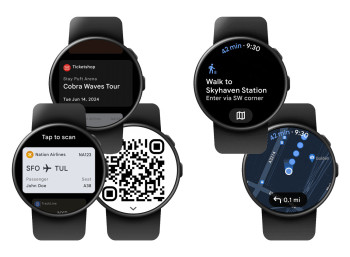
Google Brings Wallet Passes, Transit Directions to Wear OS
Google has finally updated Wallet on Wear OS to more closely match the functionality of Wallet on Android, supporting all types of cards, passes, and tickets. Wallet for Wear OS previously only supported credit and debit cards. Now it will support "boarding passes, event tickets, gym memberships, loyalty cards and more". For people who have many such cards, some can be hidden, so that the ones you use most often can be accessed without excessive swiping. Wear OS also now supports transit directions, including trip by bus, train, or ferry. "Look up departure times right from your smartwatch, then get compass-guided navigation directions to your destination."
Google Brings AI to Messaging in Android
Google today announced two major new AI features for messaging in Android. The first is in Android Auto, where AI will now automatically summarize long texts or busy group chats while driving. It will also "suggest relevant replies and actions you can take with a single tap – helping you navigate to an address, make a call, or share your ETA when someone asks for it." This feature is rolling out starting today. Separately, the Messages app for Android now lets you Chat with Gemini, where you can have a conversation with Google's new AI chatbot as if it were a person in your contacts. You can even send it photos as part of your conversation. The feature includes thumbs-up and thumbs-down feedback buttons to help Google improve Gemini, and a "Report legal issue" button. This feature is only available to users enrolled in the messages beta channel and only to adults 18 and older. For now it only supports English, and French in Canada.
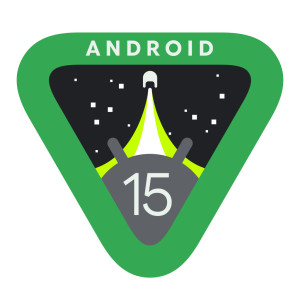
Google Starts Android 15 Testing Campaign
The very first release of Android 15 is now available for developers to test. This is a developer preview, not a public beta version, so it may lack some user-facing features and shouldn't be installed on anyone's primary device. Google says some of the improvements in Android 15 include partial screen sharing and recording, better camera controls in third-party apps, and better APIs for managing processor efficiency. Google plans to release the first beta version in April, with platform stability in June and a final release some time after July.
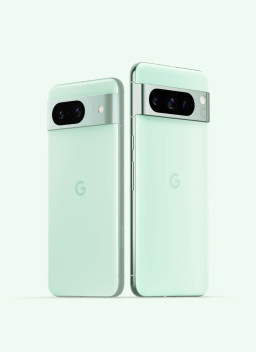
Pixel 8 Phones Gain Circle to Search, Thermometer, and new Mint Color
Google is rolling out a new "Feature Drop" software update for its Pixel 8 and Pixel 8 Pro phones. It adds the new Circle to Search feature that was initially announced for the new Samsung Galaxy S24 series. It also activates the body temperature sensor in the Pixel 8 Pro. The Thermometer app lets you point your phone at your forehead to take your temp, and results can be saved to your Fitbit profile. Google is also introducing a new Mint green color option for the Pixel 8 and Pixel 8 Pro. Circle to Search lets you circle, highlight, scribble, or tap to Google search anything on your screen, in any app, including images. Android phones already offer this feature in the app switcher, but this makes the feature easier to use. Finally, the update also includes the tweaked Quick Share function that replaces Nearby Share. Circle to Search launches January 31st, the same day the Galaxy S24 series goes on sale. Some other features are launching today, while some will roll out over the next few weeks.
AT&T and Google Invest in Space-Based Cell Service
AST SpaceMobile — the company currently testing space-based cellular service for AT&T — has secured a vote of confidence in the form of $206.5 million in new financing from AT&T, Google, and Vodafone. AT&T and Google are new investors. As part of the deal, AT&T has agreed to purchase network equipment from AST to support planned commercial service, and made a $20 million revenue commitment. Google has "agreed to collaborate on product development, testing and implementation plans for SpaceMobile network connectivity on Android and related devices". AST's technology works with existing, off-the-shelf 4G and 5G phones. In that sense, it's similar to the service that SpaceX and T-Mobile are currently testing. Both systems rely on new satellites being launched into earth orbit with massive antennas that can mimic land-based cellular base stations. These services are intended only to provide coverage in "dead zones" not covered by land-based networks.
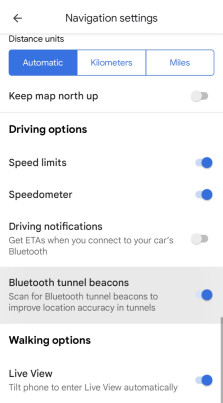
Google Maps Gains Tunnel Navigation
Google has quietly added optional support for Bluetooth beacons to its Google Maps app for Android. This feature lets the app know its location in tunnels, where GPS signals don't reach. Google's Waze subsidiary has already deployed these beacons in tunnels in cities including New York City, Chicago, and Boston. The feature is still off by default; users must go into the app settings and enable "Bluetooth tunnel beacons" under "Navigation settings" to enable the feature. The iOS version of the app does not yet offer this option.








